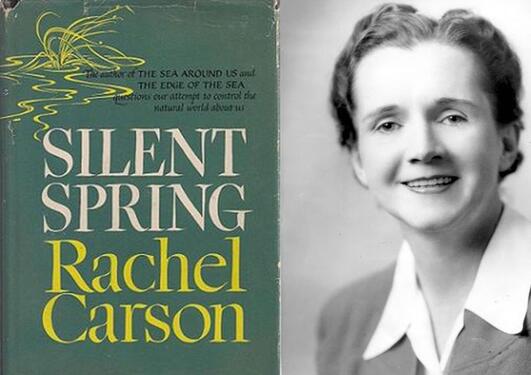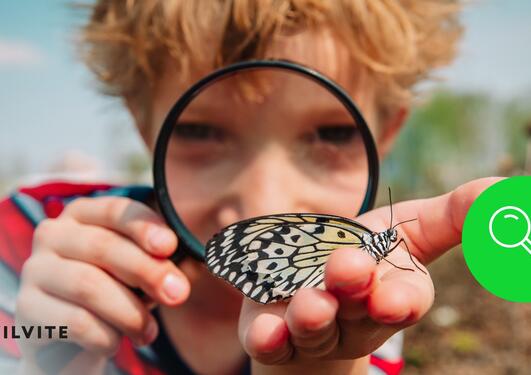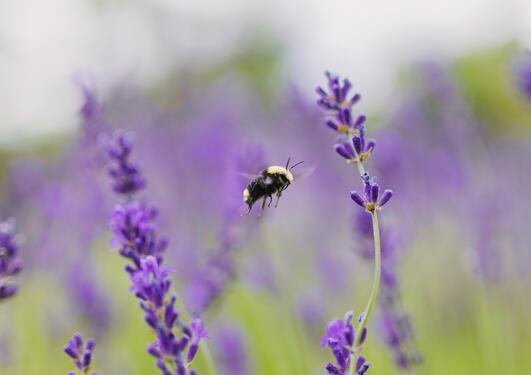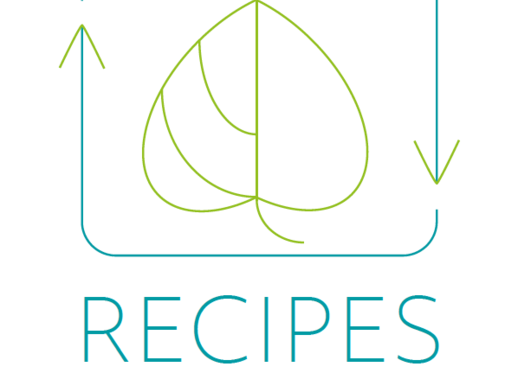BeeCaution
The aim of Beecaution is to build a Norwegian epistemic network of relevant actors to engage in the RECIPES discussion on Precaution and innovation, looking specifically at the case study on neonicotinoid pesticides and bees.

Main content
The BeeCaution project (Bees pesticides and precaution: building an epistemic network in Norway) is a national spin-off project from the H2020 RECIPES project, funded by the RCN's 'Supplementary Funding for Norwegian Participants in Horizon 2020 Projects'.
With this funding scheme, RCN aims for stronger impact of Horizon 2020 research in the Norwegian society and the involved partners and stakeholders for our supplementary funded project represent both research, society at large and industry.
The aim of the BeeCaution project is to involve and reach out to several Norwegian actors in the production of knowledge in the Horizon 2020 project RECIPES. The RECIPES project focuses on the relationship between the Precautionary Principle (PP) and innovation.

Background
The Precautionary Principle is an internationally recognized principle adopted at the UN Summit on Environment and Development in Rio in 1992. The principle enables political decision-making and regulation ofsubstances or technologies (such as chemicals, pesticides or nanotechnologies) that pose a risk to health or environment, even if knowledge on the risk is incomplete, uncertain or contested.
As a general principle of EU law, the PP allows decision-makers to act despite scientific uncertainty. Critics, however, argue that the PP may lead to excessive caution and may hinder technological innovation. In the RECIPES project, the main goal is to develop new tools and guidelines, in collaboration with various stakeholders and societal actors, which can ensure that the use ofthe precautionary principle goes hand in hand with responsible innovation. As inspiration for the development of these tools, RECIPES's partners have conducted nine empirical cases on the role of the precautionary principle in regulating various technological innovations. At UiB, we conducted a case study on the regulation of so-called neonicotinoid insecticides due to the risk they pose to pollinating insects such as bees, focusing on controversies surrounding the use of the precautionary principle.
The purpose of the BeeCaution project is to disseminate and discuss insights from the RECIPES project with Norwegian actors, NGOs, interest groups, legislators, politicians, science advisers and academics. Because of COVID-19, we had to postpone activities, but in the first months of the project we have been in contact with several relevant actors, including NBIO, the Norwegian Beekeepers' Association and researchers. In future seminars with these actors, we will discuss RECIPE's preliminary insights regarding the coordination of precautionary measures and innovation, in addition to the more specific case study of precautionary regulation of neonicotinoids. We seek input from the participants on the relevance of these results bothin general and for the Norwegian situation. Thus, BeeCaution will increase the relevance and applicability of RECIPES results for Norwegian policy advice, further research, and public understanding of the precautionary principle in general and of the controversies and challenges surrounding the regulation of pesticides.
Furthermore, we seek to channel insights from BeeCaution into the RECIPES project. This will be done, firstly, by conducting an additional analysis of the precautionary principle in the Norwegian media. Secondly, insights from the seminars with Norwegian stakeholders and actors will be shared with, and used in, the RECIPES project. Thus, the BeeCaution project aspires two-way communication between Norwegian stakeholders and the RECIPES project, by verifying and discussing the REICIPES project's insights and by communicating insights from the Norwegian context of the RECIPES project. The European Commission has shown interest in RECIPES' development of tools and guidelines, and the results of the project may thus have an impact on political and bureaucratic processes at EU level. The Norwegian authorities may benefit because Norway relies substantially on the EU's risk assessments in relation to the approval or regulation of chemicals such as pesticides.
In addition, we will reach a wider Norwegian audience by translating RECIPES policy-briefs from the project into Norwegian and disseminating them. Thus, Norwegian actors can gain access to RECIPES' research results and participate in the co-production of knowledge. We envisage that BeeCaution will bring Norwegian stakeholders closer to the international debates.
Activities
2021
- The first workshop was held the 29.04.2021. See report under Resources and presentations.
- In October 2021, the BeeCaution team participated in Vossamøtet, Norwegian West Coast's largest beekeeper event. The program included Norwegian and international presenters who talked about beekeeping techniques, the varroa mite, financial issues, wild bees, bee health and the treatment of honey. The meeting gathers around 130 people from all over Norway. BeeCaution had an information table in the lobby where we handed out information about the project, and Jeroen van der Sluijs gave a presentation about pollinators and pesticides.
2022
- On January 18, 10-13, we hosted a digital seminar called The role of the precautionary principle in European chemicals regulations with over 40 participants. Read a summary of the seminar here and watch Rudéns presentation here:
The precautionary principle in European chemicals regulations
- Students from UiB's Master in Sustainability organized activities for children and gave a short presentation about insects and pesticides at the Biodiversity weekend at the Vilvite centre in Bergen 21 and 22 May, 2022.
- Together with the international organization Task Force on Systemic Pesticides, we organized a symposium on 7 June 2022: Systemic pesticides and the biodiversity crisis: Toxic practices in agriculture, aquaculture and policy making. The symposium brought together world leading scholars from a wide range of disciplines to discuss the state of knowledge on the role of systemic pesticides in the biodiversity crisis and explore the prospects for a more precautionary governance of chemical risks. Recordings from the symposium can be found in the event page (link above).
- In co-operation with Corporate Europe Observatory, we organized a seminar in Brussels on 6 October 2022 to mark the 60 year anniversary of Rachel Carson's seminal work Silent Spring. This event sparked a lot of attention ahead of the event date and was very well attended. It also got some media attention: See here and here. All PowerPoint presentations from the event, as well as a recording, can be found on the event page.
- On 21 and 22 October 2022, the BeeCaution project was present with a stand and a poster at a major beekeepers meeting (Vossamøtet) in Voss, Norway. There were about 150 beekeepers attending, mainly from Western Norway. Beekeepers were highly interested in the BeeCaution findings and hand-outs of the translated RECIPES materials about the bees and pesticides case study were distributed as well as an A4-version of the BeeCaution poster.
2023
- On 6 and 7 February 2023, a consortium building meeting was convened in Bergen by the BeeCaution project, bringing together a team of leading scholars from Norway and several other countries with the aim to develop a research proposal for a upcoming HORIZON Europe call on “Dependence of society and the economy on pollinators” led by BeeCaution’s project leader at UiB. Several online follow-up meetings have been held that brought together leading researchers from 7 countries to form a consortium committed to submitting a research proposal in the forementioned call.
- Project leader Jeroen van der Sluijs was interviewed for the Norwegian film The Bee Battle about the bee decline. The film was made by Karmøy-based Tempo Film and can be watched on YouTube:
beebattle 2 1 sub
- On 10 May 2023 BeeCaution held its final public event in Christies Café, Bergen in the form of a public lecture on “Urgent decisions in uncertain times, the case of global insect decline“, in collaboration with the Bergen Society for the Advancement of Science (Selskapet til Vitenskapenes Fremme). The event was well attended and a podcast of the lecture together with the PowerPoint slides have been made available online.
Resources and presentations
See files below.






